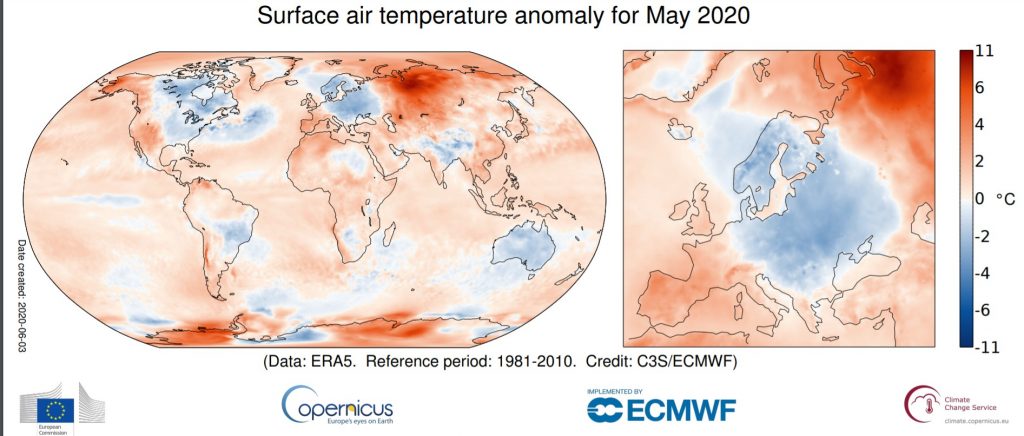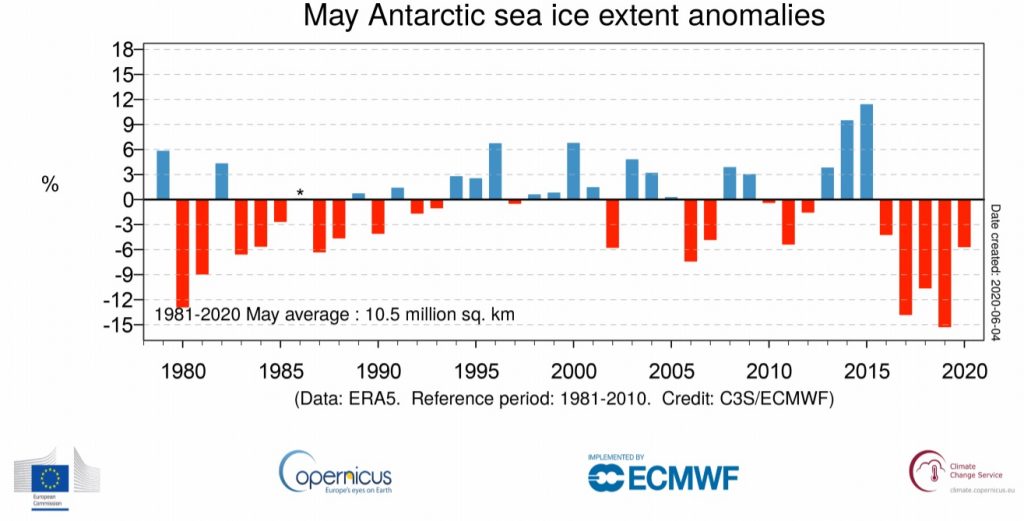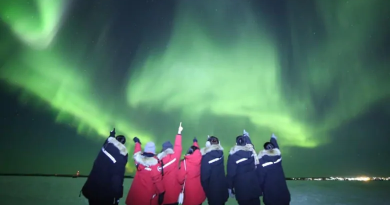Hottest May on record with Russian Arctic hardest hit

May 2020 was the hottest May on record, reported the Copernicus Climate Change Service on June 5.
Their data shows that globally, last month was 0.63 C warmer than the average May from 1981-2010.
Even in Europe, where May 2020 was generally colder than average, temperatures were still posted as high as 0.7 C above average for spring.
The month’s extreme temperatures were hardest felt in northern Russia.
Siberia, a region that spans eastern and central parts of the country, posted temperatures of 10 degrees above average, said a news release from the World Meteorological Organization (WMO) on Friday.
“Boreal spring was marked by highly anomalous temperatures over Siberia, which reached close to 10°C above the 1981-2010 average over the lower reaches of the Ob and Yenisei rivers in the north-west of the region,” the WMO said in a news release. “Here record-early break-up of river ice has been reported.”
Regions of Canada below average
The data showed some parts of Canada strayed from the trend, with central and eastern Canada showing below-average temperatures.

“Relatively warm but less exceptional conditions extended around much of the Arctic, though the season was colder than average over northern Canada and around Svalbard,” Friday’s Copernicus Climate Change Service report said.
Arctic, Antarctic sea ice below average
The sea ice extent in the Arctic this May was also below average, at 8 per cent less than the May 1981-2010 average. That figure is the fifth lowest on record.
Again, the report said the data was the most dramatic in Russia, especially around the island of Novaya Zemlya sandwiched between the Barents and Kara Seas.

In Antarctica, sea ice extent was six per cent below average.
Write to Eilís Quinn at eilis.quinn(at)cbc.ca
Related stories from around the North:
Canada: Indigenous leaders in northwestern Canada declare climate emergency, CBC News
Finland: Finland behind on sustainable development goals, Yle News
Greenland: COVID-19 delay, early ice melt challenge international Arctic science mission, The Associated Press
Iceland: Ice-free Arctic summers likely by 2050, even with climate action: study, Radio Canada International
Norway: Norway to expand network of electric car chargers across Arctic, The Independent Barents Observer
Russia: Red alert for northern Siberia as heat shocks threaten tundra life, The Independent Barents Observer
Sweden: January temperatures about 10°C above normal in parts of northern Sweden, says weather service, Radio Sweden
United States: Temperatures nearing all-time records in Southcentral Alaska, Alaska Public Media




Hottest May on record.
The current global warming is certainly detrimental to both polar regions.
Adaptability is certainly the watchword